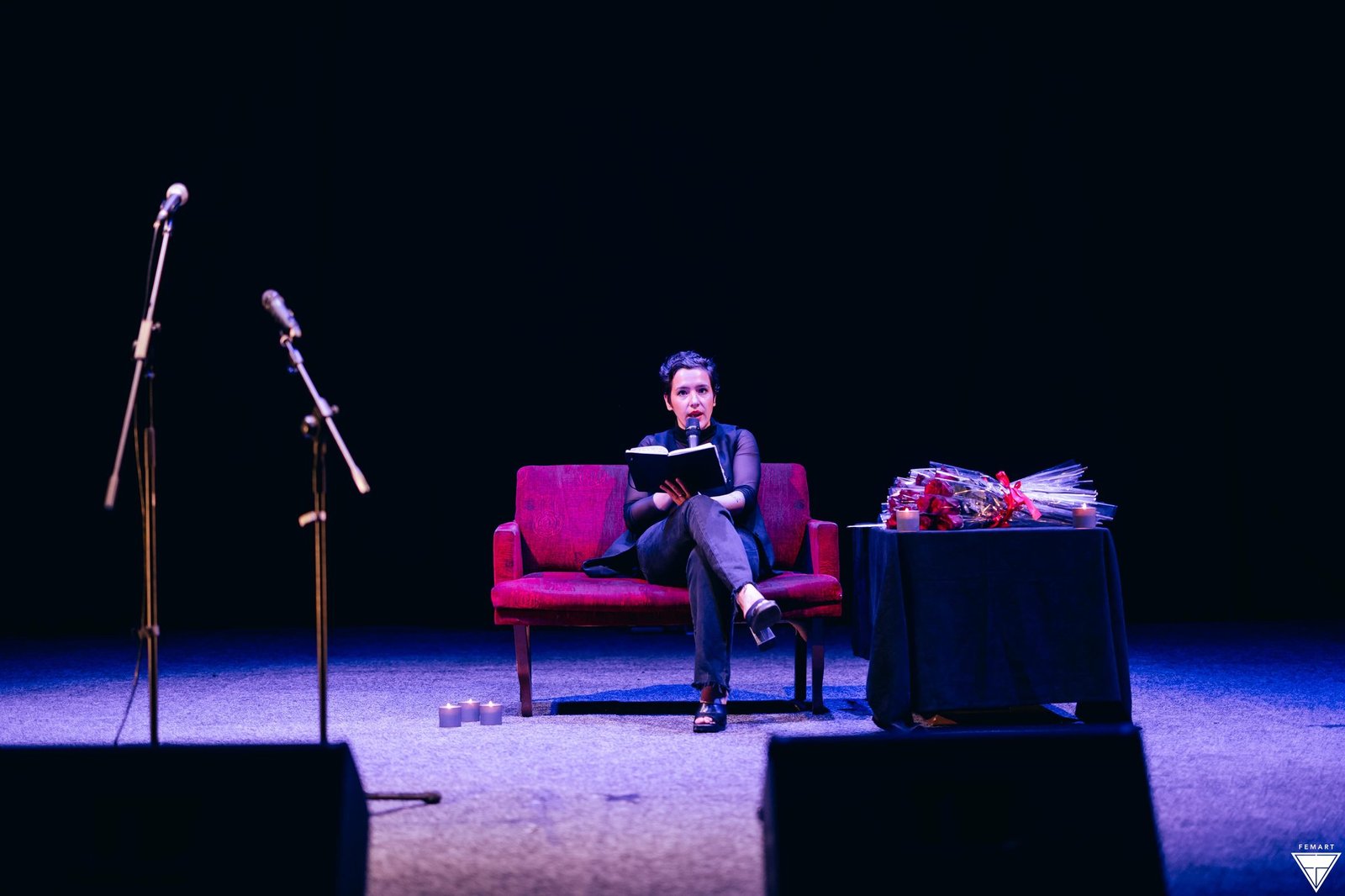By: Gili Hoxhaj
A red armchair, a few flowers on the nearby table, and some candles. That’s all it takes to open the doors to a therapy session in the form of a performance. At the same time, it fits a poetry stage just as well. “Where in your body do you feel the shame?” asks the director, who leads the performance solely through first-person communication. This question comes after asking the audience to close their eyes and take a deep breath. She goes on to explain shame as one of the strongest and most misunderstood emotions. It seems we all agree. Shame has been a norm—perhaps even a regime—for how to be more polite. Or at least, how to appear so. A social norm defined by what generates the most gossip. The more a behavior is gossiped about, the more shameful it is considered.
The performance “Black Shame – Burial of the Body” on FemArt’s third day steered my thoughts toward this reflection: Who defines shame in a way that limits our freedom? The director suggests that shame can also act as a guide—something we can learn from, like a mirror rather than a weapon or an enemy. And she adds that tonight, we have the courage. “Five years ago, I wrote this piece, starting with the word we were raised with: ‘shame this, shame that.’ I saw how angry I was and began to write,” she shares with the audience, breaking down its deep personal and creative impact. She notes that shame has been nourished by everyone; we’ve breathed it like air, and it was here long before us—especially for girls.
The director invited the audience to reject shame. As an act of revenge for the mothers and sisters who never got to live freely. “Break your neck, may our paths never cross again so that we may live in peace,” she declared. Then, actress Aurita Agushi recited Still I Rise by Maya Angelou—a powerful manifesto of pride, resilience, and inner strength in the face of injustice.
The stage then yielded to music. A voice—crystal-clear and deep—emerged, guiding us slowly through lyrics we needed to chew on gently. To feel. The artist, with a striking presence, balanced rhythm and melody with ease. This was A R B Ë R E S H Ë, an artist raised in the diaspora who found in music a place that truly felt like hers. Self-taught and a multi-instrumentalist, she moves freely across genres, guided by instinct and emotion, with a deep and intuitive connection to Albanian folk songs—melodies that rest in the subconscious, waiting to be awakened. Through her interpretations, A R B Ë R E S H Ë brings them into the present—breathing life into echoes of the past and into herself.
Later, director Jehona Jahaj returned. She gathered the red flowers from the table and asked the participants to symbolically bury everything that holds them back from dreaming bigger—from being better to themselves. There, we buried guilt, silence when we should speak, the shame of saying “no,” regret, fear of trying something new, doubt, the shame of demanding basic rights, modesty, the endless “what ifs,” the tendency to hesitate, the shame of feeling too much, false relationships, and endless greed. Each received a flower in return—to honor the liberated self. Free from inner fears. Emerging from a funeral for what no longer serves us—into a rebirth of who we have the right to become.

